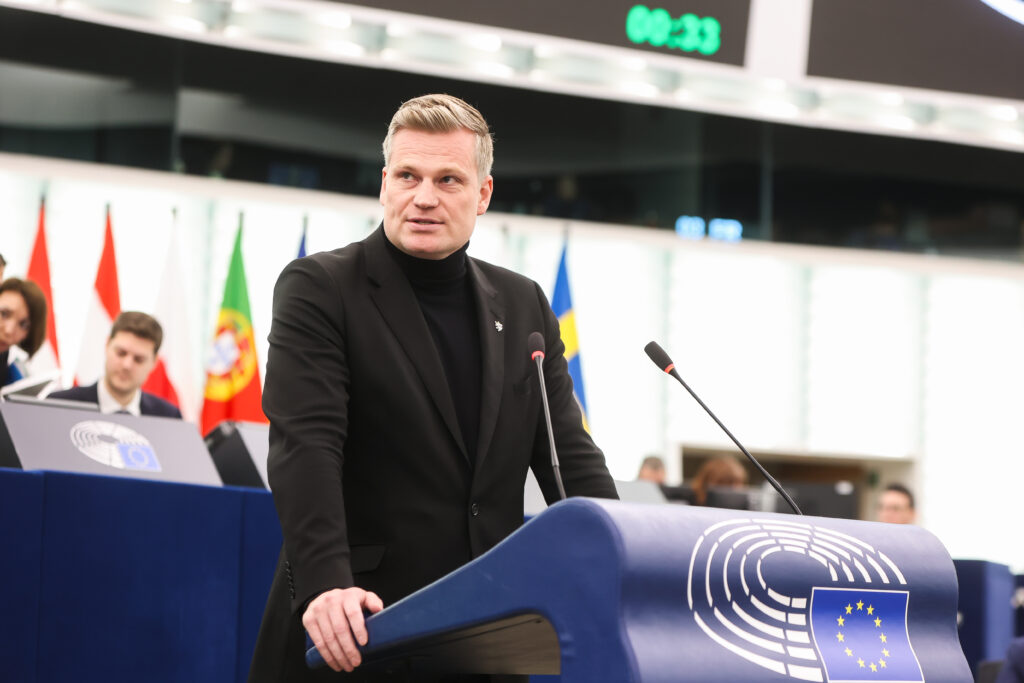Columnists at The Telegraph newspaper repeatedly attacked the new Labour government’s climate policies during its first 100 days in office, DeSmog can reveal.
A DeSmog analysis of over 1,600 opinion pieces and editorials from The Telegraph’s website found that 94 percent of those written about environmental issues were anti-green – attacking or undermining climate science, policy and technological solutions, or environmental activists.
DeSmog found anti-climate claims in 16 percent of all of The Telegraph’s opinion pieces and editorials published over the 100 days, and in one fifth of all articles that focused on the Labour Party.
These attacks are consistent with “discourses of delay” – arguments that don’t explicitly deny climate science, but instead seek to stall climate action by calling into question the cost and implications of green policies.
Subscribe to our newsletter
Stay up to date with DeSmog news and alerts
Only 1 percent of Telegraph editorials and opinion pieces published in this period adopted a pro-green stance – framing climate policy, technological solutions, campaigners, or champions in a positive light.
The Telegraph focused its attacks on Labour’s Energy Security and Net Zero Secretary Ed Miliband, with its columnists regularly using nicknames like “red Ed” and “mad Ed” in an attempt to disparage his policies.
This comes after the Independent Press Standards Organisation (IPSO), which regulates The Telegraph, last week upheld a complaint brought against it by the Energy and Climate Intelligence Unit (ECIU) over a misleading climate claim made by the newspaper in April.
The Telegraph’s print circulation at the end of 2019, when it last released the data, was over 300,000. It had an online audience of 18.3 million in July this year.
During Labour’s first 100 days, The Telegraph published multiple articles by known climate deniers, including Canadian author Jordan Peterson, those with links to the UK’s leading climate science denial group, the Global Warming Policy Foundation (GWPF), and figures associated with Reform UK, which campaigned during the 2024 general election to scrap the UK’s net zero emissions targets and increase fossil fuel extraction.
Selwin Hart, the assistant secretary general of the UN, has warned that policies designed to reduce emissions are being hindered by a “prevailing narrative… pushed by the fossil fuel industry and their enablers – that climate action is too difficult; it’s too expensive.”
A previous DeSmog analysis found that, during the six month period to 16 October 2023, 85 percent of The Telegraph’s editorials and opinion pieces on environmental issues were anti-green.
“The British public knows that urgent climate action is needed to protect our future – but parts of our media continue to sow confusion, downplaying the threats and undermining the solutions with dangerous misinformation,” said Richard Wilson, director of the campaign group Stop Funding Hate.
“Britain urgently needs a media that tells the truth and upholds the public interest, rather than acting as a megaphone for the fossil fuel industry.
“In the meantime, advertisers need to steer well clear of The Telegraph, GB News and other media pushing the same toxic talking points and misleading narratives.”
The Telegraph is currently up for sale, and New York Sun proprietor Dovid Efune has emerged as the frontrunner to buy the paper.
Efune is reported to be courting Stand Together, a conservative philanthropic organisation founded by the fossil fuel tycoon Charles Koch, to provide funding for his bid.
Charles Koch and his late brother David have been leading sponsors of climate science denial in the U.S. over recent decades.
According to Semafor, Efune also has links to Lord Michael Farmer, who is a major Conservative Party donor, an investor in the New York Sun, and a GB News shareholder.
‘Mad’ Miliband
On average, The Telegraph published opinion pieces or editorials about the Labour Party five times a day in its first 100 days in office.
Many framed the government as untrustworthy because of its plans to fulfil the UK’s legally binding net zero commitments, focusing on Ed Miliband as the father of Labour’s green agenda.
Authors often argued that net zero would harm the UK’s economy, threaten its energy security, or lead to “rolling blackouts”. In reality, extreme weather is behind most power cuts, while evidence from Europe in recent years shows that as the share of electricity generation from wind and solar increased, interruptions decreased.
The UK’s plan to hit net zero carbon emissions by 2050 is consistent with scientific recommendations of how to stave off the worst effects of climate change, including poverty, extreme heat, and drought.
Headlines like “Ed Miliband’s energy madness makes blackouts a terrifying possibility” or “Ed Miliband is trashing Britain”, or “Ed Miliband is the new face of Britain’s net zero folly”, were typical during Labour’s first 100 days.
Conservative peer Lord David Frost, a trustee of the GWPF, penned multiple opinion pieces both criticising and insulting Ed Miliband, even referring to him as “perhaps Labour’s battiest minister.”
Regular Telegraph columnist and fellow GWPF trustee Allison Pearson labelled Miliband “thoroughly mental Mili”.
Framing Ed Miliband as ‘mad’ has been a common trope across hard-right media outlets during Labour’s first few months in power. This trope has appeared in Spiked, GB News, TCW Defending Freedom (penned by a GWPF report writer), the Daily Express, The Spectator, and the Daily Mail.
A number of Telegraph articles portrayed fossil fuel companies operating in the North Sea as victims of Labour’s plan to block new oil and gas licences, claiming that the government was “pummelling” the sector, that oil workers would soon be “extinct”, and that BP and Shell are in check with “reality” by rolling back on their climate action plans.
Columnists repeatedly argued that Labour’s policies would leave Britain more vulnerable to international price shocks, a claim that Miliband himself debunked in the House of Commons while responding to Reform UK deputy leader Richard Tice on 3 September. As Miliband correctly pointed out, “whether fossil fuels are produced in this country or internationally, they are sold on the international market.”
Two article headlines suggested that net zero was “economic suicide”, while others stated that net zero was “an act of self harm” that “will destroy” and “wreck” Britain, and “devastate” its industries.
Another raft of articles attempted to frame climate activists as deranged, selfish, or lacking a legitimate cause. Headlines included: “These art vandals are just self-indulgent idiots”; “Soup-throwing protests only happen because we indulge Just Stop Oil’s moral toddlers”; “Rich, entitled eco activists loathe the working poor”.
Multiple articles framed technologies necessary to decarbonise the economy, like renewables or heat pumps, as dangerous.
In a piece entitled “Ed Miliband’s socialist energy plans will leave Britain in the dark”, Karl Williams argued that “if Labour genuinely cared about cheap and reliable energy, it wouldn’t be gleefully pummelling the North Sea oil and gas sector.”
Other articles included the claims that “heat pumps are awful”, “Windmills and sunshine will never deliver net zero”, and “Heat pumps could bring the German economy to its knees”.
In another piece entitled “This is just the start of Ed Miliband’s green energy madness”, the author argued that the net zero secretary had set out to “inflict relatively inefficient solar on rural communities”.
In reality, the cost of solar power has dropped by nearly 90 per cent over the last decade.
Climate Denier Columnists
A number of Telegraph authors have close links to think tanks and pressure groups that advocate in favour of oil and gas expansion, including those in the Tufton Street network.
Individuals associated with the GWPF wrote at least 48 articles during Labour’s first 100 days, yet their ties to the climate denial group were not mentioned once by the newspaper.
The country’s leading climate denial political party, Reform UK, was also well represented in The Telegraph’s column inches.
Three Reform UK MPs, including party leader Nigel Farage, deputy leader Richard Tice, and Rupert Lowe, had all articles published by the newspaper, along with party chairman Zia Yusuf. Telegraph columnist Isabel Oakeshott, who is Tice’s partner, also published pieces endorsing the party.
Reform’s 2024 election manifesto included a pledge to scrap net zero. The party has suggested that climate change “has happened for millions of years based on multiple factors completely outside human control or influence” and therefore “those who think that getting to net zero will stop climate change are in fact just denying reality.”
Since being elected to Parliament in July, Farage has himself suggested in an interview with Jordan Peterson that carbon dioxide is not a pollutant because “plants don’t grow without carbon dioxide.”
The world’s foremost climate science body, the UN’s Intergovernmental Panel on Climate Change (IPCC), has stated that carbon dioxide “is responsible for most of global warming” since the late 19th century, which has increased the “severity and frequency of weather and climate extremes, like heat waves, heavy rains, and drought” – all of which “will put a disproportionate burden on low-income households and thus increase poverty levels.”
Among his Telegraph pieces, Farage called London’s Ultra Low Emission Zone (ULEZ) scheme, intended to reduce the most harmful tailpipe emissions in the capital, “legitimised theft” on the part of Labour’s London Mayor Sadiq Khan.
In another piece, Farage defended his record as a broadcaster on GB News, which also repeatedly platforms climate science denial and attacks on net zero.
The Telegraph did not respond to DeSmog’s request for comment.
Methodology
DeSmog reviewed every Telegraph opinion piece and editorial published online between 4 July and 12 October 2024 – 1,602 in total. Articles were then searched for the presence of the following keywords and their variations: “oil”, “gas”, “coal”, “fossil fuel”, “global warming”, “CO2”, “nuclear”, “environment”, “green”, “net zero”, “climate”, “carbon”, and “ULEZ”. Those which do not match any of the keywords were excluded from the sample, leaving a total of 809 articles for review.
The context in which the keywords were used was then checked to determine if the articles referenced environmental issues and in which ways. Articles were categorised in the following ways: is the article about a green topic; is there a large mention of green issues in the article; is there a passing mention of green issues; does the article attack climate science, climate action, green actors or green policies; does the article endorse climate science, climate action, green actors or green policies.
Subscribe to our newsletter
Stay up to date with DeSmog news and alerts







